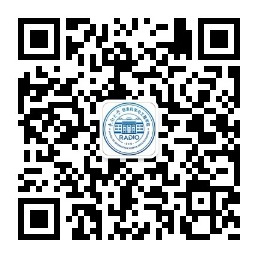Electronic and information engineering, the technical support of the information-based age, covers the two disciplines of Electronic Science and Technology and Information and Communication Engineering, which include the four sub-disciplines of “communication and information system”, “signal and information processing”, “electromagnetic field and microwave technology” and “electronic circuit and system”. Its engineering technology covers the design and manufacturing of integrated circuits, and of communication and network and other electronic systems, as well as other relevant fields of engineering and technology, such as the electromagnetic field theory and digital signal processing. The engineering field in question now boasts 5 doctoral degree programs, 7 masters’ degree programs, 22 doctoral supervisors and 68 masters’ supervisors.
Objectives: to cultivate high-level professionals in the field of electronic and information engineering, who are fond of their motherland, dedicated to their work with good professional ethics and equipped with a solid knowledge of Marxism-Leninism, Mao Zedong Thought and Deng Xiaoping Theory, and who are armed with a solid knowledge of theories and technologies in the field, capable of solving practical problems and researching and developing new techniques, processes and products, and good at using such tools as Chinese and foreign materials and computers.
Way and Duration of Cultivation: at present, only on-the-job engineering masters’ degree candidates are admitted and cultivated in the wide-scope mode with their practical ability stressed. The duration is 3-4 years, no more than 5 years, the time for leaning at school no less than six months. Their academic thesis (design) will be completed with the instruction of dual supervisors from school and enterprises.
Research Orientations: 1) communication and information system: the theory and technology concerning modern mobile communication system, digital communication theory and communication security technology, and wideband multimedia wireless communication network technology; 2) signal and signal processing: the theory and technology of information processing, digital signal processing, and digital image processing and recognition; 3) electronic circuit and system: hypervelocity integrated circuits, radio frequency, photo-electricity and microwave integrated circuits, communication network VLSI, and the circuit technology in communication and measurement; 4) electromagnetic field and microwave technology: the theory and technology concerning millimeter waves, the circuits, network and CAD of microwaves and millimeter waves, new components of microwaves and millimeter waves, as well as the propagation, radiation and scattering devices of microwaves and millimeter waves.
Layout of Courses
| Type | Course number | Course name | Periods | Credits | Time and credits | Way of teaching | Way of examination | Notes | ||
| Spring | Autumn | |||||||||
| Degree courses | Public basic courses | S0001 | Natural Dialectics | 40 | 2 | | 2 | face-to-face teaching | written examination | All are compulsory |
| S0002 | Scientific Socialism | 20 | 1 | | 1 | face-to-face teaching | written examination | |||
| | Foreign Languages(basic and professional) | 120 | 5 | | | face-to-face teaching | written examination | |||
| S0030 | Numerical Analysis | 60 | 3 | 3 | | face-to-face teaching | written examination | Selecting one of the two | ||
| S0031 | Linear Algebra | 60 | 3 | 3 | | face-to-face teaching | written examination | |||
| Disciplinary basic courses | S00401 | Modern Digital Signal Processing | 60 | 3 | 3 | | face-to-face teaching | written examination | Selecting two of the three | |
| S00402 | Random Process | 60 | 3 | | 3 | face-to-face teaching | written examination | |||
| S00437 | IC Design Basics | 60 | 3 | | 3 | face-to-face teaching | written examination | |||
| Disciplinary courses | S00403 | Digital Communication | 60 | 3 | 3 | | face-to-face teaching | written examination | Selecting two of the four | |
| S00420 | Digital Image Processing | 60 | 3 | 3 | | face-to-face teaching | written examination | |||
| S00428 | VLSI Design Technique | 60 | 3 | 3 | | face-to-face teaching | written examination | |||
| S00444 | Microwave Network | 60 | 3 | 3 | | face-to-face teaching | written examination | |||
| Non-degree courses | Optional as needed by the academic thesis and instructed by the supervisor | | 10 | | | | course paper or examination | | ||
| Literature reading and thesis proposal | Over 30 literature materials must be read (including 2 written in foreign language ) | | 2.5 | | | | | Compulsory (as detailed in Note 1) | ||
| Practice | Solving 1 to 2 practical problems in the factory | | 2 | | | | | Compulsory (as detailed in Note 2) | ||
| Academic discussions and conferences | To be carried out in accordance with SEU’s temporary regulations concerning the cultivation and administration of masters of engineering | | 1.5 | | | | | Compulsory | ||
Notes:
The technicians concerned from the specific unit where the student practices at must participate in the review of the thesis proposal.
The student must submit a report of facts and analysis, with relevant units’ proof to the effect.

